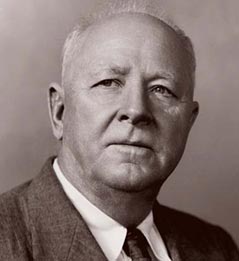A Quote by David Hume
Mankind are so much the same, in all times and places, that history informs us of nothing new or strange in this particular. Its chief use is only to discover the constant and universal principles of human nature.
Related Quotes
Religion informs us that misery and sin were produced together. The depravation of human will was followed by a disorder of the harmony of nature; and by that Providence which often places antidotes in the neighborhood of poisons, vice was checked by misery, lest it should swell to universal and unlimited dominion.
In nature nothing remains constant. Everything is in a perpetual state of transformation, motion, and change. However, we discover that nothing simply surges up out of nothing without having antecedents that existed before. Likewise, nothing ever disappears without a trace, in the sense that it gives rise to absolutely nothing existing in later times.
History is largely a record of human struggle to wrest the land from nature, because man relies for sustenance on the products of the soil. So direct, is the relationship between soil erosion, the productivity of the land, and the prosperity of people, that the history of mankind, to a considerable degree at least, may be interpreted in terms of the soil and what has happened to it as the result of human use.
To be hopeful in bad times is based on the fact that human history is not only of cruelty, but also of compassion, sacrifice, courage, kindness. If we see only the worst, it destroys our capacity to do something. If we remember those times and places where people have behaved magnificently, this gives us the energy to act. And if we do act, in however small a way, we don't have to wait for some grand Utopian future. The future is an infinite succession of presents, and to live now as we think human beings should live, in defiance of all that is bad around us, is itself a marvelous victory.
The introduction of the Christian religion into the world has produced an incalculable change in history. There had previously been only a history of nations--there is now a history of mankind; and the idea of an education of human nature as a whole.--an education the work of Jesus Christ Himself--is become like a compass for the historian, the key of history, and the hope of nations.
In the formation of such a government, it is not only the right, but the indispensable duty of every citizen to examine the principles of it, to compare them with the principles of other governments, with a constant eye to our particular situation and circumstances, and thus endeavor to foresee the future operations of our own system, and its effects upon human happiness. Convinced of this truth, I have no apology to offer for the following remarks, but an earnest desire to be useful to my country.
But in fact as knowledge expands globally it is being lost locally. This is the paramount truth of the modern history of rural places everywhere in the world. And it is the gravest problem of land use: Modern humans typically are using places whose nature they have never known and whose history they have forgotten; thus ignorant, they almost necessarily abuse what they use.
When we complain of having to do the same thing over and over, let us remember that God does not send new trees, strange flowers and different grasses every year. When the spring winds blow, they blow in the same way. In the same places the same dear blossoms lift up the same sweet faces, yet they never weary us. When it rains, it rains as it always has. Even so would the same tasks which fill our daily lives put on new meanings if we wrought them in the spirit of renewal from within--a spirit of growth and beauty.
Nothing comes to pass in nature, which can be set down to a flaw therein; for nature is always the same, and everywhere one and the same in her efficacy and power of action: that is, nature's laws and ordinances, whereby all things come to pass and change from one form to another, are everywhere and always the same; so that there should be one and the same method of understanding the nature of all things whatsoever, namely, through nature's universal laws and rules.
There are no accidents in Nature. Every motion of the constantly shifting bodies in the world is timed to the occasion for some definite, fore-ordered end. The flowers blossom in obedience to the same law that marks the course of constellations, and the song of a bird is the echo of a universal symphony. Nature is one, and to me the greatest delight of observation and study is to discover new unities in this all-embracing and eternal harmony.








































